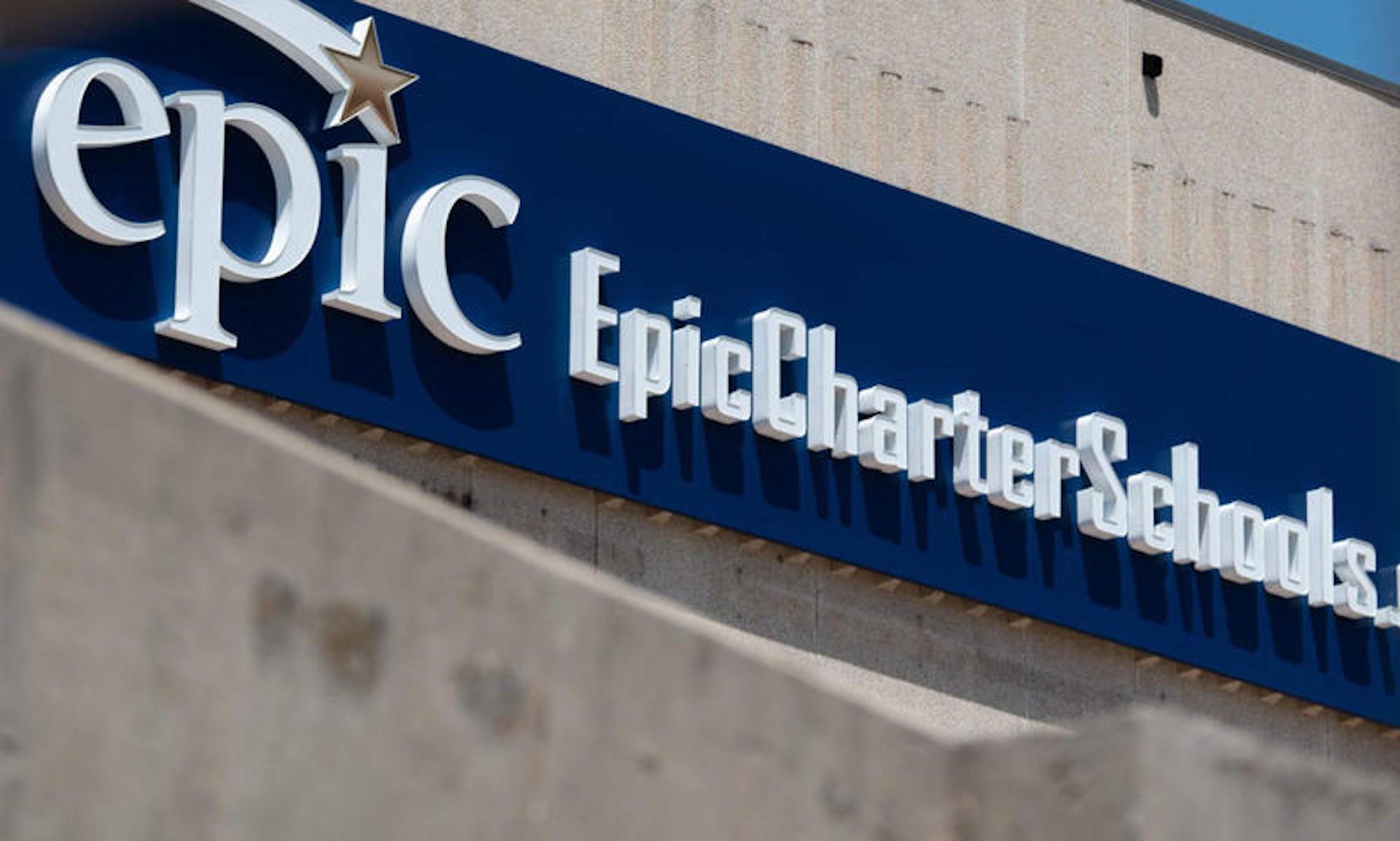
A sign is seen outside of 50 Penn Place in Oklahoma City where Epic Charter Schools leases 40,000 square feet for administrative use.
Whitney Bryen/Oklahoma Watch


A sign is seen outside of 50 Penn Place in Oklahoma City where Epic Charter Schools leases 40,000 square feet for administrative use.
Whitney Bryen/Oklahoma Watch
Monday was not a good day for Epic Virtual Charter Schools.
The virtual charter behemoth is facing fresh scrutiny from Oklahoma leaders in the wake of an investigative audit report that says they owe millions of dollars to the state.
Oklahoma’s State Board of Education met and after hours of deliberations, unanimously put in motion an $11.2 million clawback.
The demands include asking for $8.9 million in payroll costs over the past six years after Epic underreported how much it paid administrators. A 2016 incident when Epic reclassified some costs to avoid a $2.6 million penalty for exceeding the administrative cost limit now needs to be repaid. So does $203,000 in taxpayer dollars paid to Epic’s California charter school.
“This is not normal,” said Carlisha Williams Bradley, a former charter school superintendent and current member of the state school board. “This is not OK.”
After the meeting, state schools superintendent Joy Hofmeister said Epic would have 60 days to pay the money back, and if it doesn’t, the State Department of Education would withhold future funds.
In a statement on Twitter, Epic said it disputes the audit findings and will work to prove it does not owe the penalties.
As for day-to-day operations of the school, there shouldn’t be any negative consequences for students in the immediate future, Hofmeister said.
“Our action today should in no way cause disruption to students and their families in learning right now,” Hofmeister said.
Additionally, Oklahoma Attorney General Mike Hunter appointed special counsel Melissa McLawhorn Houston to review the auditor’s report and make determinations about criminal charges.
“With assistance and resources provided from my office, she will conduct an extensive review of the auditor’s findings and make recommendations based on the rule of law,” Hunter said in a press release.
The State Virtual Charter School Board posted its agenda Monday, including an item that says it would consider terminating its contract with Epic Virtual Charter Schools.
The last time a virtual charter school’s contract was terminated was in 2016 when ABLE Virtual Charter School’s contract was ended. However, that charter school was much smaller with only 61 students versus 61,000 at Epic, so the process would likely be far different.
State Auditor Cindy Byrd said the virtual charter behemoth owes Oklahoma taxpayers the $11.2 million for a string of concerning actions in the 120-page investigative report.
Her report said Epic, the state’s largest virtual charter school, was given half a billion dollars over the last five years. And of that, at least $125 million has been siphoned through a learning fund that goes to families and a for-profit management company operated by Epic’s founders Ben Harris and David Chaney.
Because there’s no oversight of that money, it’s unclear how much if any actually went to educating kids, Byrd said. And that’s a big problem, Hofmeister said after the state board meeting.
“It’s very important to have transparency and accountability with taxpayer money,” Hofmeister said after the meeting.
Those records remain tied up in litigation as Epic says they should remain private. But Byrd continues to fight for a full accounting of those dollars in court.
The audit report concludes that Oklahoma should consider that for-profit organizations running charter schools might not be a good idea. Though the report also makes clear that it is not a general condemnation of charter schools.
Epic Charter Schools has characterized Byrd’s audit as ‘political theatrics’ and called it a ‘seemingly endless fishing expedition.’
The school also offered a more than 100-page rebuttal to each point.